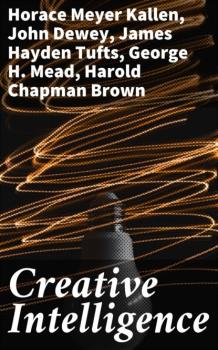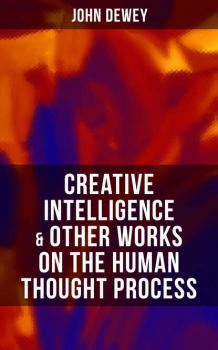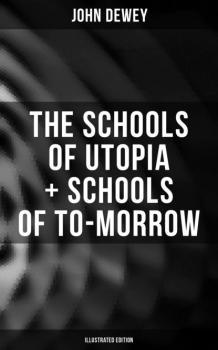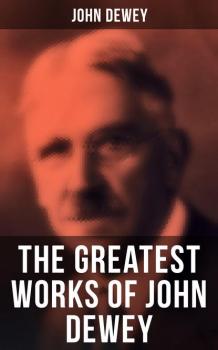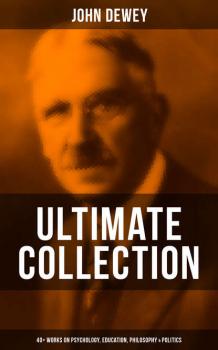ТОП просматриваемых книг сайта:
Джон Дьюи
Список книг автора Джон ДьюиАннотация
John Dewey examines the goals, forms, methods, and meaning of education in his work. Throughout his works readers will be able to find out how to develop a winning philosophy of education, increase students' motivation and improve school environment. Table of Contents: Democracy and Education The Child and the Curriculum The School and Society Schools Of To-morrow The Schools of Utopia Moral Principles in Education Interest and Effort in Education Health and Sex in Higher Education My Pedagogic Creed
Аннотация
John Dewey was travelling in Japan in 1919. He was invited by Peking University to visit China. Dewey and his wife, Alice, arrived in Shanghai on May 1, 1919, just days before student demonstrators took to the streets of Peking to protest the decision of the Allies in Paris to cede the German held territories in Shandong province to Japan. Their demonstrations on May Fourth excited and energized Dewey, and he ended up staying in China for two years, leaving in July 1921. In these two years, well aware of both Japanese expansionism into China and the attraction of Bolshevism to some Chinese, Dewey advocated that Americans support China's transformation and that Chinese base this transformation in education and social reforms, not revolution. Their works and letters from China and Japan describing their experiences to their family were published in 1920.
Аннотация
Musaicum Books presents to you this carefully created volume of «The Essential John Dewey: 20+ Books in One Edition». This ebook has been designed and formatted to the highest digital standards and adjusted for readability on all devices. Contents: German Philosophy and Politics Leibniz's New Essays Concerning the Human Understanding: A Critical Exposition Studies in Logical Theory Interpretation of Savage Mind Ethics The Problem of Values Soul and Body Logical Conditions of a Scientific Treatment of Morality The Evolutionary Method As Applied To Morality The Influence of Darwin on Philosophy Nature and Its Good: A conversation Intelligence and Morals The Experimental Theory of Knowledge The Intellectualist Criterion for Truth A Short Catechism Concerning Truth Beliefs and Existences Experience and Objective Idealism The Postulate of Immediate Empiricism "Consciousness" and Experience The Significance of the Problem of Knowledge Essays in Experimental Logic Reconstruction in Philosophy Does Reality Possess Practical Character? Criticisms of John Dewey The Chicago School John Dewey's Logical Theory The Pragmatic Theory of Truth as Developed by Peirce, James, and Dewey John Dewey (1859-1952) is one of the primary figures associated with the philosophy of pragmatism and is considered one of the founders of functional psychology. His ideas have been influential in education and social reform.
Аннотация
"Creative Intelligence" by Harold Chapman Brown, John Dewey, Horace Meyer Kallen, Addison Webster Moore, Henry Waldgrave Stuart, George H. Mead, James Hayden Tufts, Boyd Henry Bode. Published by Good Press. Good Press publishes a wide range of titles that encompasses every genre. From well-known classics & literary fiction and non-fiction to forgotten−or yet undiscovered gems−of world literature, we issue the books that need to be read. Each Good Press edition has been meticulously edited and formatted to boost readability for all e-readers and devices. Our goal is to produce eBooks that are user-friendly and accessible to everyone in a high-quality digital format.
Аннотация
"Ethics" by John Dewey, James Hayden Tufts. Published by Good Press. Good Press publishes a wide range of titles that encompasses every genre. From well-known classics & literary fiction and non-fiction to forgotten−or yet undiscovered gems−of world literature, we issue the books that need to be read. Each Good Press edition has been meticulously edited and formatted to boost readability for all e-readers and devices. Our goal is to produce eBooks that are user-friendly and accessible to everyone in a high-quality digital format.
Аннотация
Schools of To-morrow and The Schools of Utopia argue that education and learning are social and interactive processes, and thus the school itself is a social institution through which social reform can and should take place. Students should thrive in an environment where they are allowed to experience and interact with the curriculum, and all students should have the opportunity to take part in their own learning.




